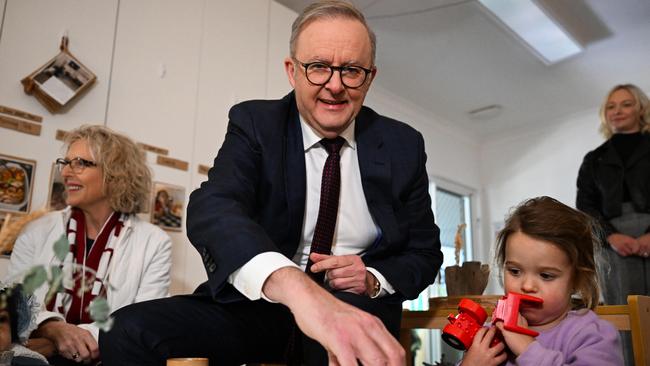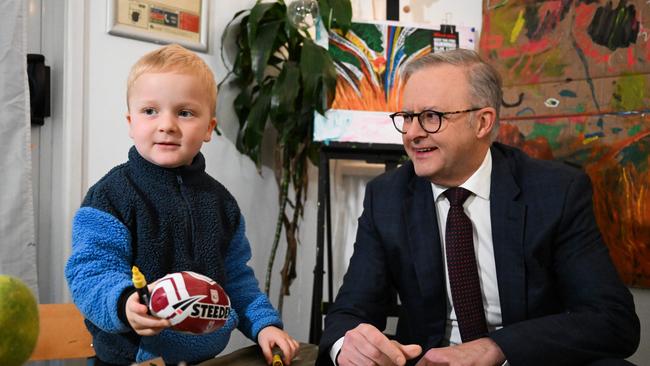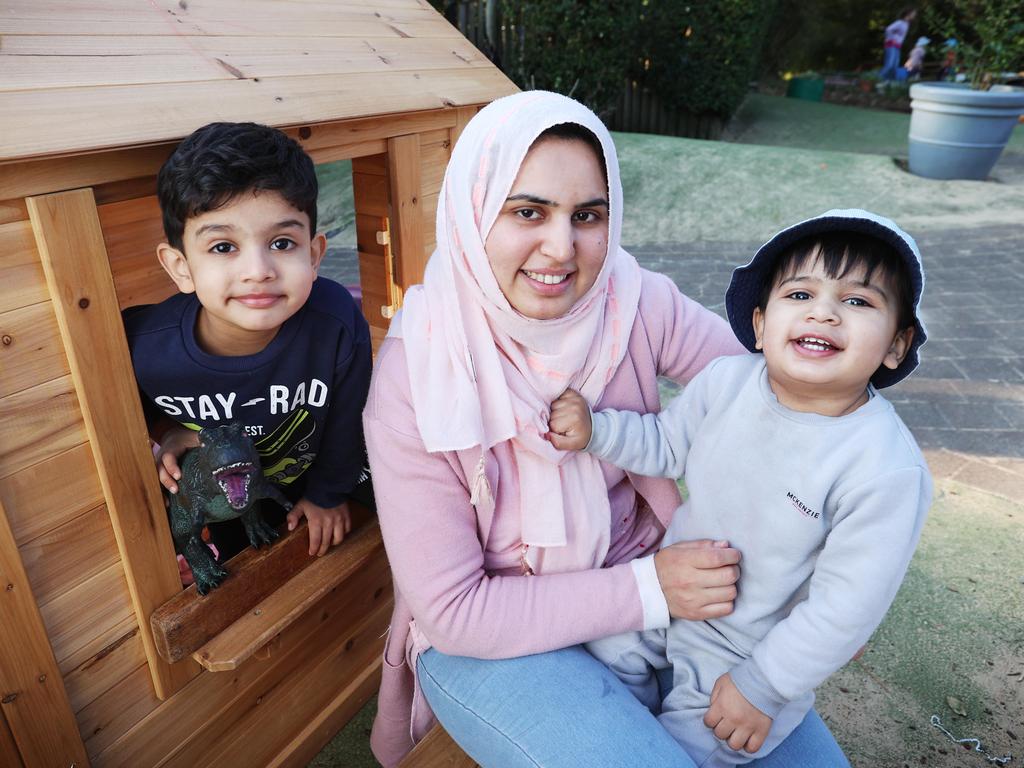Economists warn that $10-a-day childcare will see costs skyrocket
Some economists say Anthony Albanese implementing a flat daily fee for childcare will primarily benefit high-income households, and that ‘subsidies just end up leading to price increases’.

Some economists say Anthony Albanese implementing a flat daily fee for childcare will lead to an “explosion of costs” and primarily benefit high-income households rather than struggling families.
As the Prime Minister prepares to make a policy announcement to introduce universal childcare in the lead-up to the election, the proposal to introduce a flat daily fee of $10 or $20 a day has gained support in the Labor backbench.
The model is widely supported by early education advocates but would see Labor defy a recommendation by the Productivity Commission to provide families on $80,000-a-year or less free childcare with the subsidy level tapering down based on income.
University of NSW professor of economics Richard Holden said unless the supply of childcare places increased, the cost of subsidising childcare would skyrocket under the flat fee model.
“If you don’t increase supply, subsidies just end up leading to price increases,” he said.
Professor Holden said he did not believe advocates had “articulated” the case for a flat daily fee, arguing that it would require the government to pay for the largely for-profit sector’s increasing costs.
“Why that would suddenly lead to cost containment rather than an explosion of costs has never been made clear, as far as I’m aware,” he said.
“Are we going to start having government run childcare?”
In a report examining pathways to universal childcare released in September, the Productivity Commission estimated that a $10-a-day flat fee model would cost $8.3bn and increasing subsidies to 90 per cent across the board would cost $6bn.
The commission calculated that providing fully subsidised childcare to low income families while removing the activity test, which requires parents to work or volunteer a certain number of hours to receive subsidies, would cost $4.7bn.

Labor MPs Carina Garland, Michelle Ananda-Rajah and Marielle Smith wrote submissions to the commission’s inquiry calling for reform to make childcare more available and affordable to families.
“Universal early childhood education and care is about everyone having access to a system that they can afford,” Dr Garland said.
Labor MP Mike Freelander said a flat fee approach would be preferable in the short term, but a greater overhaul of the system bringing childcare into public schools was necessary.
“We need to look at bringing childcare into the public school system,” he said. “That’s the conversation we need to have for quality childcare.”
Several other Labor backbenchers told The Australian they favoured a flat fee model, with one backing the suggestion to place childcare in the school system.
Australian National University economist Ben Phillips said governments “keep making the same mistake” regarding childcare, with subsidies continually being undercut by rising costs and the benefit going to largely wealthy families.
“It’s a bit like the stage three tax cuts under the Scott Morrison government, where most of the benefits went to high-income families and those at the bottom didn’t really get much,” Professor Phillips said.
“I think ultimately, it’s political. The government just wants to be able to say that it’s got some big, new, shiny reform and it’s going to have a big impact.”
Thrive by Five director Jay Weatherill, who is a former Labor premier for South Australia, said he supported a flat fee approach because it would overhaul the existing funding model and promote a “deeper relationship” between the government and the providers.
“You’d need a different set of arrangements, because instead of the government just saying, ‘Here’s a voucher, go off and shop for childcare’, what you’re really doing is saying ‘Your fee is limited to whatever the fixed fee price is’,” he said.
“And then the provider, to meet their costs, needs to be in a relationship with the government, and it’s that relationship that will allow the government to drive some of these other issues, like accessibility and affordability, all the quality issues and the provision issues that are so important to improving the system.”




To join the conversation, please log in. Don't have an account? Register
Join the conversation, you are commenting as Logout